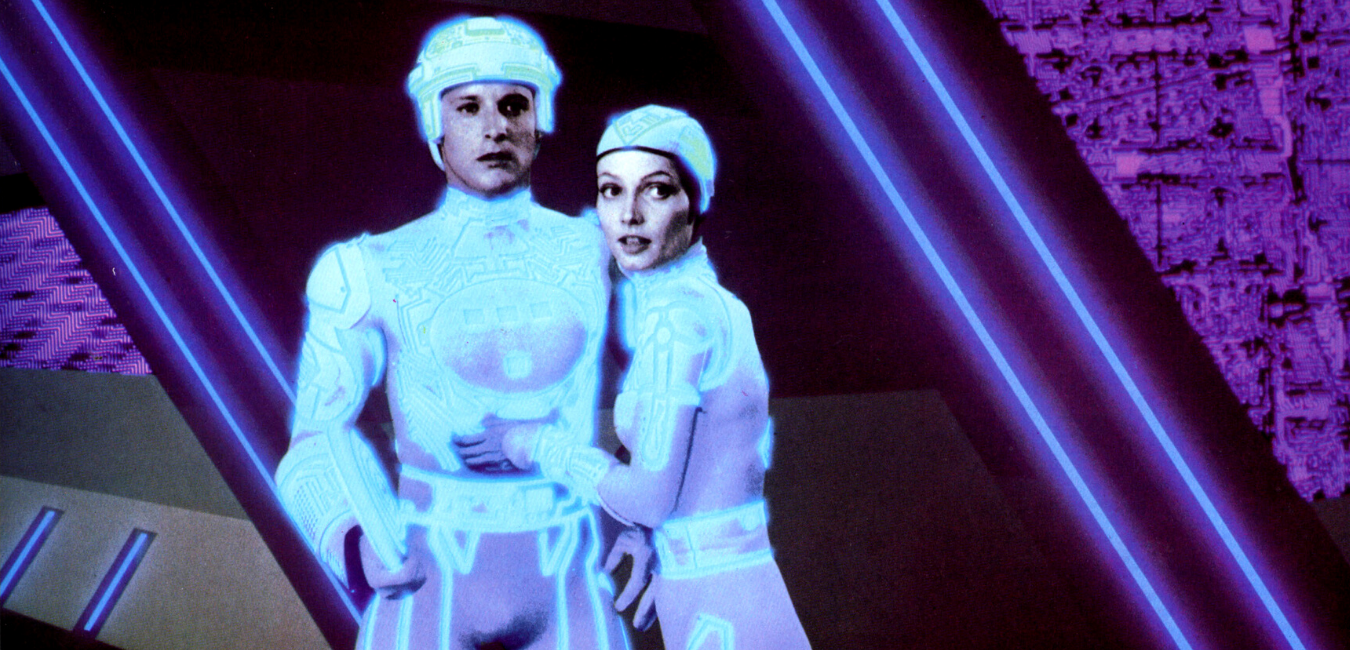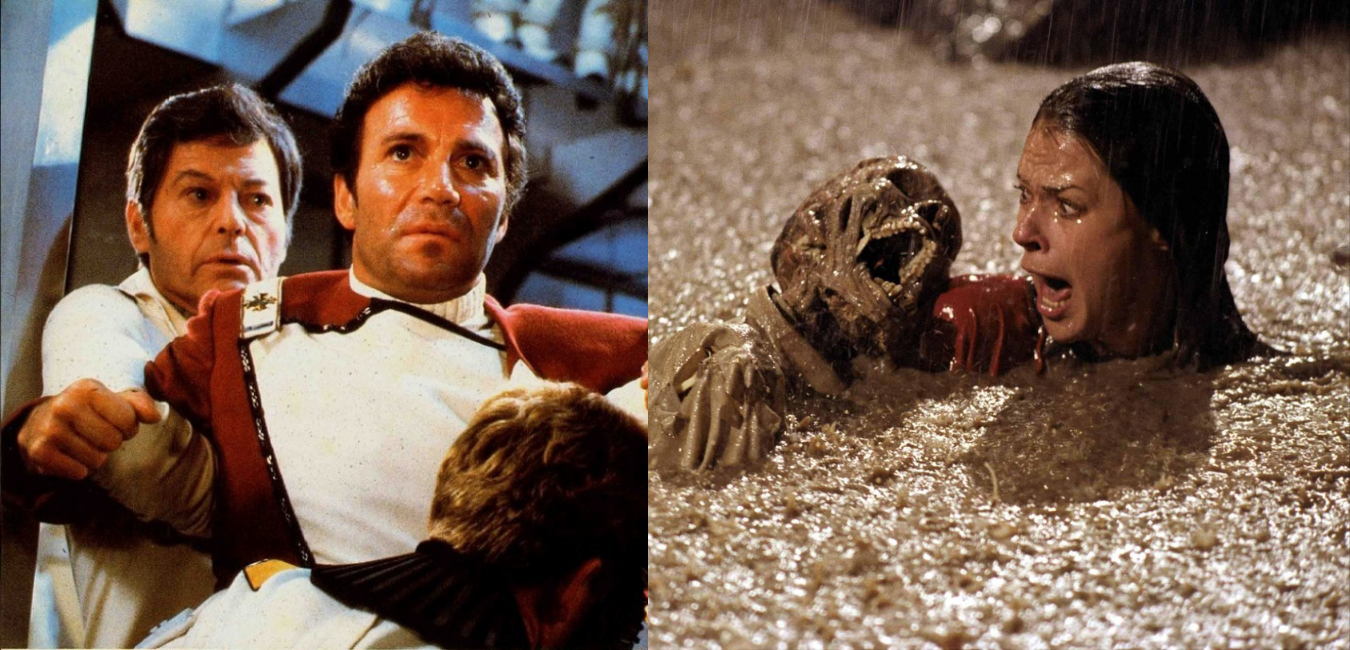Why ‘Tron’ is the most influential movie of 1982

Bruce Boxleitner (left) and Cindy Morgan yearn for freedom in “Tron.” (Disney/MovieStillsDB.com)
"Tron"
Directed by Steven Lisberger
Released July 9, 1982
Where to Watch
The summer of 1982 saw the debut of some of the most popular movies of all time, including ticket-sellers ("E.T. the Extra-Terrestrial"), sentimental favorites ("Rocky III," "Star Trek II: The Wrath of Khan"), and genre classics ("Blade Runner," "The Road Warrior," "The Thing"). But I'd be hard-pressed to argue any of these flicks were as influential to the future of cinema as "Tron."
The setting of "Tron" speaks to the year it was released. Jeff Bridges stars as Kevin Flynn, a genius computer programmer who was pushed out of his corporate job at ENCOM and now manages a video game arcade. It turns out he's pretty great at that, too, particularly the "Tron" game in his arcade. Since his firing from ENCOM, Flynn has been trying to hack into the corporation's systems to prove that his program was stolen by ENCOM's current senior vice president, Ed Dillinger (David Warner). After several failed attempts, Flynn seeks help from his friends Alan (Bruce Boxleitner) and Lora (Cindy Morgan), who still work for ENCOM. However, ENCOM is now run by a Master Control Program (MCP), an artificial intelligence that is gradually taking command of all other computer programs. The MCP digitizes Flynn and inserts him into the digital world, where he must learn to play video-game-like challenges by himself to escape.
You cannot dispute that the text of "Tron" pointed to our future on the Internet and beyond, where our digital selves are no longer limited to one arcade machine or device but can be shared amongst large communities. The explosion of social media has helped us all create digital avatars of ourselves that represent different aspects of our personality, while online gaming has established environments where players can log on and either play with or against one another. Advancements in virtual reality and the evolution of companies like Facebook into Meta continue to push us further into the digital space, where as much as our identity will live as we let it.
"Tron's" other distinction is its status as the first feature-length movie to extensively use CGI effects. When the film enters the digital realm, all backgrounds and vehicles are created with computer effects, while the actors are filmed in live-action with backlit neon suits. The visuals are primitive with modern eyes, as the computer effects are mainly large shapes with little detail. It's also challenging to get a sense of location or distance for the characters within the story, as the repetitive backgrounds provide us with little depth. Even still, the concept of filming real-life actors and inserting the footage into a fully-digital landscape has been typical of modern high movies for more than a decade, and it all started here with "Tron."
The origins of "Tron" are even more remarkable in hindsight. Director Steven Lisberger was inspired to begin working on the story after seeing early computer-generated imagery, along with "Pong," one of the earliest video games that are similar to tennis (elements of "Pong" can be seen in one of "Tron's" contest scenes). While researching computer technology with his co-screenwriter Bonnie McBird, Lisberger was also impressed with Xerox's graphic design interface they developed for their computers, which made the systems more visually intuitive. It's the idea that would lead to the modern computer desktop screen. While Xerox didn't develop it further, Steve Jobs saw their work and adapted it to his Apple computers, forever changing the home computer market.
Lisberger already saw the future in 1982. He told The New York Times that computer-generated imagery would one day replace all optical effects in film.
"The most amazing thing about 'Tron,'" said Lisberger, "is that its back lot is sitting on somebody's desk. There's a computer file with a couple of floppy disks that have all the information on them necessary to generate those images again. For 'Tron,' we've designed the beginnings of a video game landscape. If we wanted to make a 'Tron 2,' we could call up that world, and simulate more."
The response was a mild success when audiences finally looked at "Tron" in theaters. The film earned mixed reviews, with most panning the generic story, and it barely made a dent in theaters with a $33 million domestic gross. It was good enough to make more than its budget but hardly the numbers that suggested Disney had Hollywood's next big franchise on its hands. It took several decades before a sequel was produced - 2010's "Tron: Legacy" - and while the 1982 original remains a cult favorite, its legacy is more tied to its story and technology of the future.
"What if those tiny Space Invaders and Pac-Men were real creatures, miniature gladiators sent to do battle for the amusement of their heartless captors?" wrote Janet Maslin in her New York Times film review. "The lavish Walt Disney production 'Tron' tries prodigiously to do this, but its technological wizardry isn't accompanied by any of the old-fashioned virtues - plot, drama, clarity, and emotion - for which other Disney movies, or other films of any kind, are best remembered. It is beautiful - spectacularly so, at times - but dumb."
The actual story of "Tron" may not be very compelling, but its background and status in the history of film have earned its own chapter. "Tron" showed us all what was possible, both online and in cinema.
At the Box Office: In its fifth weekend of release, "E.T. the Extra-Terrestrial" officially becomes the biggest hit of the year, grossing another $12.8 million over three days to bring its domestic total to $106.8 million. Breaking the nine-figure mark was also pretty rare for films of this era, making "E.T.'s" success even more impressive. Obviously, the popular Steven Spielberg film also retained its first-place crown at the box office this weekend.
"Tron" opened in second place with $4.8 million, a fairly mediocre debut based on the movies already debuting this summer. It's just enough for the runner-up prize, as several films all performed around this level. "Rocky III" was third with $4.5 million, "Firefox" earned $3.6 million for fourth place, and "Poltergeist" re-enters the top five with $3.2 million in its sixth weekend.
Next Week: "Young Doctors in Love"
Mark is a longtime communications media and marketing professional, and pop culture obsessive.




